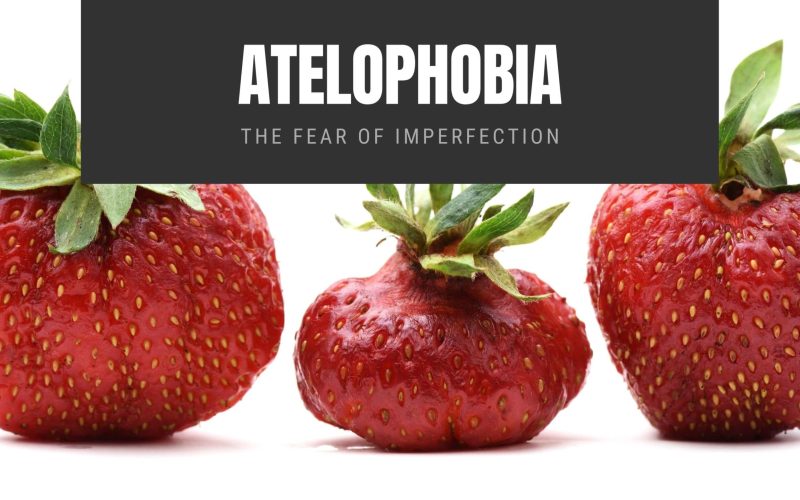Although it has some similarities to perfectionism, atelophobia is a real mental condition that is characterized by the dread of imperfection and the feeling of not being good enough. In this article, you will learn more about this fear and how to overcome it.
Perfectionism is something most people often consider to be a strength rather than a shortcoming or weakness.
But is it possible for that constant desire for perfection to become irrational and unhealthy? The simple answer to that is yes. When you begin to be paralyzed by perfectionism, you start to have Atelophobia.
Considering how people tend to take lightly severe anxiety disorders such as obsessive-compulsive disorder (OCD), this is a crucial distinction to make.
Even though perfectionism has its drawbacks, atelophobia goes more profound than merely holding yourself to high standards — it’s a fear of imperfection that is deep-seated and seriously affects your life.
Fortunately, researchers have known for long that such phobias are easily treated with the use of exposure therapy, in which sufferers are introduced slowly to feared situations or objects until they can comfortably experience them.
Atelophobia is the dread of imperfection, not being good enough, or doing something wrong. It is when a person’s expectations do not line up with reality.
In simple terms, it is a form of obsessive perfectionism that is irrational and can paralyze a person and cause them countless stress-related medical problems.
People who have Atelophobia can never achieve the standards that they set for themselves. This condition seriously affects their relationship with others and their ability to function in their daily activities.
When people with this condition realize they have not achieved their goals, they tend to become sad and overcome by negative emotions.
Atelophobia makes a person scared of mistakingly messing up and making mistakes without even knowing it.
Even tasks that are seemingly the simplest can torture a person who has Atelophobia because they use up many of their resources monitoring themselves. This leads such people to take only a few risks or none.
Psychological symptoms that accompany atelophobia
- Avoidance
- Feeling powerless
- Anxiety
- Intense fear
- Fear of losing control
- Confusion
- Irritability
- An inability to focus.
There are also some potential physical symptoms of this condition, such as rapid breathing, headaches, heart palpitations, dry mouth, nausea, and excessive sweating.
The Causes of Atelophobia
No one has found out what exactly causes atelophobia. It may likely have a genetic origin or stem from a traumatic event. However, we are sure that, in most cases, it is the outcome of a learned response from a young age.
As the years go by, the feeling gets worse and turns chronic.
Atelophobia is categorized as a specific phobia that is focused on non-social factors. All particular phobias tend to come from specific childhood trauma and are usually related to physical hurt.
The upbringing of a person can also play an essential role. We are discussing things like warnings from teachers or parents about a direct threat.
Researchers also assume that genetics and some hereditary factors may have a role to play in specific phobias, especially elements that are connected to the threat of physical harm.
These scientists believe some individuals have a genetic predisposition to slip into their “fight or flight” response more swiftly than others.
One thing that is, however, right of all phobias is that some information and experiences can worsen or reinforce a fear.
For instance, that may occur if a close friend or family member is impacted by something similar. In more extreme cases, indirect exposure may be as distant as learning about a piece of news or hearing something in a conversation.
Like most specific phobias, atelophobia comes from a subconscious overprotection mechanism. Atelophobia can also stem from unresolved emotional conflict, just like many other phobias.
Parents who push their children for perfectionism and teachers who are too strict are sometimes discovered to be the root causes of mental disorders in the future, as well as the fear of not being good enough.
What is the Difference Between Atelophobia and Perfectionism
Atelophobia and perfectionism are two concepts that have a lot in common. However, they are not the same. There is a significant difference between both of them.
It’s a fact that people who have atelophobia make perfection the ultimate goal, one which they never reach because it is impossible. However, atelophobia is far beyond merely setting high standards for yourself.
The real problem with Atelophobia is that it is paralyzing and not motivating. For most perfectionists, the best response to their stress is working harder. On the flip side, People who have atelophobia do nothing to prevent making any mistakes.
Perfectionism can sometimes be a side effect of an individual’s desire to become successful. Although it comes with its issues, it can sometimes help a person to become better and more successful.
5 Signs You Have Atelophobia
1. You’re Frightened of Flaws
Most people are terrified of making even tiny mistakes, but what catapults what we consider an everyday fear into the phobic territory is the level of a person’s reaction.
People who have atelophobia have responses that are disproportionately strong when they think of imperfection — it is the thin line between getting nervous before a meeting or speaking in public and entirely skipping it because the mere thought of the event is terrifying.
Here, a person may feel the need to try harder to achieve a goal but is overcome by an unexplainable weakness.
2. You Avoid Situations Where You Might Make Mistakes
Phobias have avoidant behavior as a significant characteristic; in other words, people will go out of their way to skip whatever they are scared of.
In the case of atelophobia, this avoidance behavior would mean steering clear of any situation where one might make a mistake or be considered imperfect. It is essential to note that atelophobia and social phobia are not the same.
While Atelophobia and social anxiety involve a crippling fear of scrutiny by others — people who have social phobia are scared of judgment from other people. In contrast, people with atelophobia are likely to judge themselves.
3. You Set Impossible Standards
People who have atelophobia are very critical of their work, and for that reason, they’re often on the lookout for their errors. This may contribute to other conditions like low self-esteem and even depression.
4. You Would Rather Do Nothing at All Than Do Something Incorrectly
As discussed earlier, people who have a phobia will find some of the most creative ways to avoid what they are scared of.
Unfortunately, the fear of imperfection may apply to all situations, and avoiding these situations may mean putting things off.
In fact, people with atelophobia would rather do nothing at all than get something wrong when they try to do anything.
Needless to say, this can lead to severe difficulties in school and the workplace.
5. Your Fear Interferes With Your Life
Again, this is one of the relatively common behaviors, which is why it is vital to understand the difference between normal behavior and a phobia.
Most persons can heal from their fears quite quickly, but they may not like it, and they may be capable of facing their fears.#
However, Atelophobia makes it much more challenging to function normally in the society, whether it is an inability to work out on time or with difficulty maintaining relationships, and that is when it may be time for you to seek help.
Let us know what you think about it. Leave a comment below.








